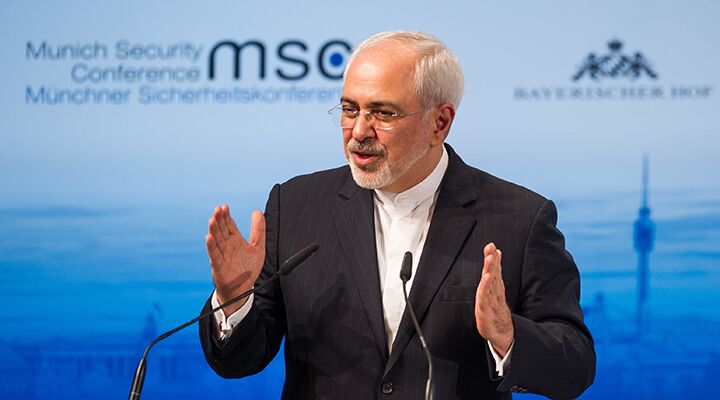
Iran’s Javad Zarif Visits Australia
On March 14, Iranian Foreign Minister Mohammed Javad Zarif will head to Australia. The controversial visit has drawn little attention from the media and silence from the nation’s capital, Canberra.
Those few who have spoken up in criticism of the meeting point the finger at Zarif’s Australian counterpart Julie Bishop. Many accuse her of ignoring Iran’s heinous support of terrorism in order to solve Australia’s domestic issues.
Ms. Bishop visited Iran last year to discuss intelligence sharing between the two nations. Both parties agreed to share information about Australians fighting with the Islamic State—a move that just a few years ago would have sent the media into a frenzy.
This upcoming visit though will focus on Australia’s more pressing domestic issues—in particular the 9,000 Iranian refugees who have failed to gain Australian residency and must be shipped home. Until now, Iran has not allowed the vast majority to return.
More than 20 percent of migrants held in mainland immigration detention centers in Australia are from Iran. Of the total 9,000 Iranian refugees, 7,000 are living in Australia on bridging visas. The rest are in refugee detention centers. Since 2012, just 430 asylum seekers have returned to Iran—all did so with cash assistance from Australia and the International Organization for Migration.
Critics of the upcoming visit claim that Bishop is attempting to cozy up to Zarif in order to get the refugees shipped back to Iran. Labor M.P. Michael Danby criticized Bishop’s “welcoming stance.” He pointed to the apparent ignoring of Iran’s violation of human rights. Others have pointed out Iran’s high level of executions, treatment of minorities, and, of course, illegal missile tests.
However, in an effort to get the refugee deal signed, Iran’s sins are being swept under the Persian rug.
Further highlighting this fact, Zarif is scheduled to speak at the Australian National University during his trip. In expectation of his arrival, the university has described Iran as “playing an increasingly important role in combating terrorism and working for peace and security in the Middle East.” The lack of any information regarding Iran’s role as the number one state sponsor of terrorism in the world is astounding.
We saw the same thing happen in Europe. While Iranian President Hassan Rouhani was shaking hands with prime ministers of Italy and France, his boss, Ayatollah Khamenei, was posting videos that denied the Holocaust. Time and time again, officials purposefully deny what Iran really is in order to secure trade deals and tap into the lucrative new Iranian market.
Iran has played a clever hand. Iran will undoubtedly be looking to make trade deals with Australia in return for allowing the refugees to come home. We have already seen Iran’s work in whipping up whirlwind deals across Europe. Zarif’s six-nation trip across Southeast Asia and Australasia should yield similar results.
What does this do? It cements Iran’s legitimacy as a credible world power. It enables Iran to deepen its economic ties so that when—not if—Iran decides to tear up the P5+1 deal and continue to pursue nuclear weaponry, sanctions won’t work. Think about it. With so many nations now eager to invest in Iran and tap into the relatively untouched natural gas supplies, future possibility of “snap-back” sanctions has been undermined. For the United States to impose new sanctions on Iran, it would need to convince a whole host of nations to do away with the deals they have now signed with Iran. Look at how many there are already. China is investing heavily and has now established its “silk road” to Iran. Europe is eager to trade, with deals for airplanes and automobiles well under way. Australia wants to deepen ties to solve the growing refugee crisis. How long would it take to convince all of these nations to end their respective deals? A month, a year, never?
Iran knows what it is doing. It is ensuring that the threat of “snap-back” sanctions will be little more than hot air. It is wasting no time in reviving its ailing economy. Zarif’s outing to Australia is just the latest in a long list of international trips by Iranian officials eager to create an Iran impervious to economic sanctions.
